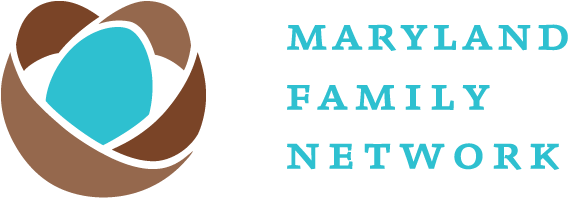
We have created this brief video presentation to help child care providers take additional steps to keep the children in your care, your staff, and yourself healthy. You can also watch our series of online sessions, Caring During COVID: Providing Child Care During a Time of Pandemic.
COVID-19 Procedures for Child Care Providers (Updated Sept. 25, 2020)
the cares act
- The CARES Act was passed by Congress and signed into law on March 27, 2020. An overview and a Q&A from the U.S. Senate Committee on Small Business and Entrepreneurship. Additional information from the U.S. Department of the Treasury is also available.
- Under the CARES Act, $350 billion will be used to establish the Paycheck Protection Program, which provides loan guarantees to small businesses to assist with payroll costs for workers who are forced to stay home. Loans will be available for firms that meet SBA small business size standards, self-employed, sole proprietors, independent contractors (i.e., workers in the “gig” economy), and certain nonprofits including 501(c)(3)s, 501(c)(19)s, and tribal business concerns with fewer than 500 employees. For help finding lenders that are eligible to offer Paycheck Protection Act loans, please click here.
- For companies with more than 500 employees, the CARES Act provides $500 billion distributed to distressed industries, including passenger airlines, cargo air carriers, and industries related to national security. You can learn more here.
- The CARES Act also creates a $150 billion Coronavirus relief fund for states and territories.
- $139 billion is set aside for states and is allocated based on population, using latest census data. There is a minimum of $1.25 billion per state. Maryland is expected to receive an estimated $2.344 billion.
- Local governments in jurisdictions with populations of at least 500,000 may request a direct payment from the U.S. Department of the Treasury.
- The CARES Act establishes a refundable, 50% payroll tax credit (the Employee Retention Credit) covering up to $10,000 paid per employee, including benefits from the period of March 13, 2020 to December 31, 2020. Read more, and find additional IRS guidance on Coronavirus tax relief here.
- Guidance on COVID-19-related tax credits for businesses providing paid sick-leave can be found here.
- The CARES Act also includes support for economic development agencies and programs, including funding for the Community Development Block Grant, assistance to minority business development centers and minority chambers of commerce, several million for state arts and humanities agencies and partners, and more, to assist businesses in need.
maryland and small business administration
- Governor Hogan announced on March 19 that the entire state of Maryland has received official designation for SBA assistance. Individual businesses can apply directly to the SBA for low-interest loans through the Economic Injury Disaster Loan (EIDL) program. Visit SBA’s website to apply now.
- With the passage of the CARES Act, an additional $10 billion has been added to the SBA’s EIDL program, which provides low-interest loans to companies affected by the outbreak. There is also a new emergency $10,000 advance from SBA. This advance may be available even if your EIDL application was declined or is still pending, and will be forgiven.
- The expansion of the EIDL program now includes tribal businesses, cooperatives, ESOP’s, individual contractors, sole proprietors, and private non-profits with less than 500 employees.
- General SBA guidance for businesses can be found here. If you need additional help navigating the SBA process, Maryland SBDC can help.
- For even more help, join one of SBA’s daily webinars or conference calls.
- 3:00 pm, Daily Call – 202-765-1264; ID # 827-299-626
- 5:30 pm, Daily Call – 202-765-1264, ID # 310-688-488
- 10:30 am and 8:00 pm – Zoom Webinar. Download the ZOOM app for free. Meeting # 6794772946. Have all your necessary documents ready.
The Small Business Administration (SBA) has additional programs to help businesses and general information can be found here. The U.S. Treasury Department also has resources.
For those programs that may be in need of cleaning products and other protections, the Maryland Emergency Management Agency has a listing of local EMS programs that may be able to help you.
for employees, unemployment insurance information can be found at:
- The CARES Act and direction for employees, Fact Sheet (Maryland Department of Labor); and,
- The Department of Labor
- Family Child Care Providers are eligible for a number of Federal programs. Our friends at NAFCC have number of documents that can help you determine if you meet the criteria for eligibility. They include:
File
- The Duke Law Community Enterprise Clinic has created this resource on completing the form and the process for the Paycheck Protection Program.
groceries and other resources
- MSDE has worked to connect providers with many of the large grocery stores and big box stores across Maryland to allow child care providers to purchase above set limits on certain items and to have access to stores during non-peak hours. Some of the big box stores have agreed to allow child care providers to use the store without a membership. Most of the stores contacted are willing to work with child care providers, but in differing ways. Please use the PDF letter below to contact the manager of your local store to learn about the options they have for you to purchase needed food and supplies. You must have your child care license or registration, in addition to the letter, when shopping.
File
- The National Women’s Law Center has created, Considerations for Child Care Providers & Workers Navigating Financial Support Options During the COVID-19 Crisis.
- Talking Points for Communicating with Policy Makers About Child Care

